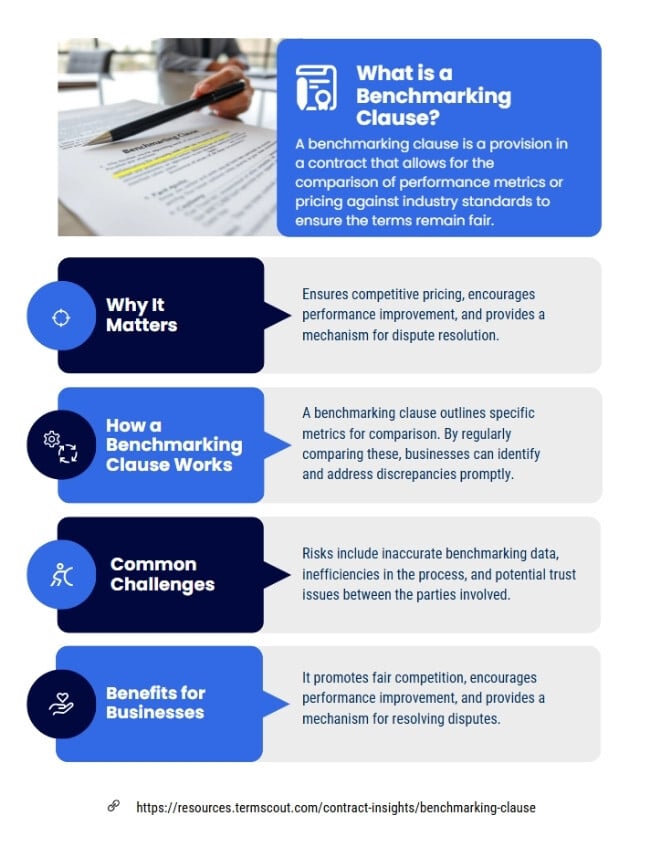For businesses looking to ensure fair pricing and performance in their contracts, understanding the importance of a benchmarking clause is crucial.
What is Benchmarking Clause?
A benchmarking clause is a provision in a contract that allows for the comparison of certain performance metrics or pricing against industry standards or competitors. This clause helps to ensure that the terms of the contract remain competitive and fair over time.
Why It Matters
- Ensures competitive pricing
- Encourages performance improvement
- Provides a mechanism for dispute resolution
How Benchmarking Clause Works
When included in a contract, a benchmarking clause typically outlines the specific metrics or standards that will be used for comparison. This could include pricing, quality of service, or other key performance indicators. By regularly comparing these metrics, businesses can identify any discrepancies and address them promptly.
Common Challenges in Benchmarking Clauses
- Risks of inaccurate benchmarking data
- Inefficiencies in the benchmarking process
- Trust issues between parties
Try TermScout SaaS Contract Platform
Analyze, benchmark, and certify your contracts to reduce friction and close deals 3x faster.
Get Started Now

Benchmarking Clause FAQs
How does a benchmarking clause work in a contract?
A benchmarking clause outlines specific metrics for comparison, enabling businesses to monitor and adjust terms based on industry standards or competitor performance.
Why is a benchmarking clause important in outsourcing contracts?
In outsourcing contracts, a benchmarking clause helps maintain competitive pricing and service quality, ensuring fair terms for both parties.
What should be included in a benchmarking clause example?
A benchmarking clause example should specify the metrics, frequency of comparison, and the benchmarking methodology to be used for evaluation.
How can a benchmarking clause benefit businesses?
A benchmarking clause can benefit businesses by promoting fair competition, encouraging performance improvement, and providing a mechanism for resolving disputes.
Are there any risks associated with a benchmarking clause in a contract?
Yes, risks include inaccurate benchmarking data, inefficiencies in the benchmarking process, and potential trust issues between the parties involved.